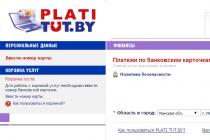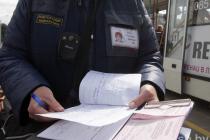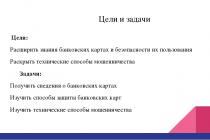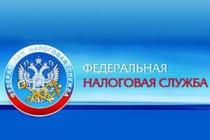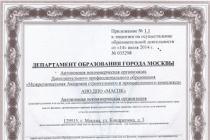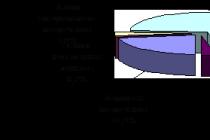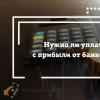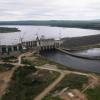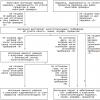Passport of a citizen of Ichkeria.
According to some sources, this passport was created during the period when the Chechen Republic wanted to secede from Russia.
WITH
The company that produced the CRI passport forms:
OBERTHUR CARD SYSTEMS SA
102 Boulevard Malesherbes 75017 Paris, FRANKREICH
Tel.: +33 1 47 64 64 00
World Chechen Congress Warsaw, Poland.
September 17, 2010
Speech by the Chairman of the Government of the ChRI:
Vainakhs from many countries around the world ask why we do not put Chechen passports into circulation. We still could not put them into circulation for the reason that we did not have them in stock. After the end of the First War, our Government brought only a small part of them to Chechnya, and these documents were then completely distributed. After the outbreak of the Second War, Russia began to put pressure on the country in which the order for the production of passports was placed, and we were refused to receive them.
Therefore, by a resolution of our Cabinet of Ministers, we placed an order for the production of passports in another country and, with God’s permission, in the near future this work will be completed and we will put Chechen passports into circulation.
Today we will not be able to officially use them, because our passports are not included in the international register, but, nevertheless, their introduction will be a landmark event of great political significance. Our passports will correspond to the Vainakh identity and, moreover, protect this identity.
Forms of passports for citizens of the Chechen Republic of Ichkeria of three types:
Official (blue cover)
General Civil (gray cover)

Diplomatic (green cover)


The Republic of Ichkeria is a region on part of the territory of Chechnya that declared itself a sovereign state in 1994. Ichkeria de facto existed until 2000 and during this time acquired the attributes of a state, including its own currency, which, however, was never put into circulation. During the existence of the self-proclaimed republic, several leaders have changed, but Chechens have always considered the first president, Dzhokhar Dudayev, to whom the republic owes its, albeit short-lived, existence as a symbol of freedom and struggle. Dudayev focused his attention on the ideology that united the people of the republic, and supported it with visual attributes, which is mandatory from the point of view of propaganda. Now we could say that he was engaged in territorial branding. The purpose of such communications was to increase the loyalty of the target audience - all residents of Chechnya - to fight for independence and build a new state.
Dzhokhar Dudayev

The flag of the Chechen Republic of Ichkeria, according to the author of the book “We are One People,” reflects the historical fate of the people. Most of the canvas is occupied by the green color of peace and prosperity. A white stripe is depicted along the entire flag, representing the path taken by the people to achieve freedom. A red line runs through the center of the white stripe, symbolizing the blood shed to achieve independence and preserve the national and spiritual way of life. The whole composition suggests that the Chechens are a people striving for prosperity and harmony. Therefore, the color of peace prevails in the flag over the colors of bloodshed and struggle.

The coat of arms of Ichkeria depicts a she-wolf lying under the moon. The national ornament turns into a crescent, in the lower part of which there are nine stars, corresponding to the number of Chechen associations - tukkhums. The final sketch of the coat of arms was drawn by Dudayev’s wife Alla, who took the image of Akela from Mowgli as a basis. Later, the image of the details of the coat of arms sometimes changed. The central star could be depicted either of equal size with the others or enlarged; the wolf could be black, gray, white; the moon could be replaced by a crescent.
The son of the first president of Ichkeria, Degi Dudayev: “This coat of arms is on my shoulder, I tattooed it, knowing that we, Muslims, are not entitled to tattoos, and before the funeral it will definitely be burned off the body, but I won’t care. This flag and coat of arms hung for several years, they were removed, but they will remain on me until the end.”

Marşo ya Joƶalla! (Marsho I Iojalla!) / Freedom or death!
In addition to Ichkeria, such a motto was used at different times by separatists in Greece, Bulgaria, Macedonia, Romania, Ukraine, Armenia, and Uruguay.

Dudayev tried to introduce the national currency “Nakhar” into circulation, but the circulation printed in London was destroyed during hostilities in 1994. According to another version, he did not even reach the republic. The President took an active part in the development and approval of the design. The banknotes conveyed the main values of the republic - traditions, spiritual leaders, warriors, family towers and even oil refineries.

Interestingly, numismatists in Moscow recently discovered coins with the symbols of Ichkeria from 2013. Some consider this a provocation of foreign intelligence services, others - souvenirs of Chinese craftsmen.


Attempts to introduce Ichkerian passports into circulation are still being made. It turns out that the intangible Ministry of Foreign Affairs of Ichkeria is still functioning, which for 58 euros can provide a passport to any Chechen and person of another nationality who lived on the territory of Chechnya before 1994. The self-proclaimed ministry believes that the passport of Ichkeria reflects a person’s civic position and can serve as a legal basis for obtaining political asylum in the countries of the European Union.
Orders and medals

Many awards brought joy to their owners with such picturesque names as “Gazavat’s sword” and “knight of honor.”

The government of Ichkeria had several combat aircraft. On the tail was an emblem in the form of a green star with the coat of arms of Ichkeria in the center.







Passport of a citizen of Ichkeria.
According to some sources, this passport was created during the period when the Chechen Republic wanted to secede from Russia.
WITH
The company that produced the CRI passport forms:
OBERTHUR CARD SYSTEMS SA
102 Boulevard Malesherbes 75017 Paris, FRANKREICH
Tel.: +33 1 47 64 64 00
World Chechen Congress Warsaw, Poland.
September 17, 2010
Speech by the Chairman of the Government of the ChRI:
Vainakhs from many countries around the world ask why we do not put Chechen passports into circulation. We still could not put them into circulation for the reason that we did not have them in stock. After the end of the First War, our Government brought only a small part of them to Chechnya, and these documents were then completely distributed. After the outbreak of the Second War, Russia began to put pressure on the country in which the order for the production of passports was placed, and we were refused to receive them.
Therefore, by a resolution of our Cabinet of Ministers, we placed an order for the production of passports in another country and, with God’s permission, in the near future this work will be completed and we will put Chechen passports into circulation.
Today we will not be able to officially use them, because our passports are not included in the international register, but, nevertheless, their introduction will be a landmark event of great political significance. Our passports will correspond to the Vainakh identity and, moreover, protect this identity.
Forms of passports for citizens of the Chechen Republic of Ichkeria of three types:
Official (blue cover)
General Civil (gray cover)

Diplomatic (green cover)


Ichkerian passports - show-off business
Euro-Ichkerians, as continuers of the most vile traditions of Ichkerism, came up with one topic - how to make money on the name “Chechen Republic-Ichkeria”. It was not enough for them that during the years of their power on the Chechen land they belittled the name of the Chechen as best they could; as always, they needed money, the essence of their existence. Nothing personal just business.
Passports of Ichkeria - this topic has a long history. Berkan Yashar, a Turkish Chechen, an employee of the American intelligence services in 1994 helped Dudayev print Ichkerian passports and currency. At first, 5 thousand copies of passports were printed, which was planned to be increased to 1 million. Dudayev paid 4 million dollars for them and for the new currency (naharsh). The passports are still in France to this day, having been suspended at the request of the Russian Federation in 1997 as cargo contributing to the spread of separatism. When there was a chance to introduce them, the Ichkerian leadership gave up, fearing the diplomatic and economic consequences for the entire republic. It’s one thing to shout at rallies how good we are, and there are only enemies around us; it’s another thing to deal with solving problems.
#Chechnya #Ichkeria #passport #business #Ismailovumar #Germany #Euro-Ichkerians #scam #berkanyashar
More you might like
Udugov or other Wahhabis shout a lot about the fact that those who fought in the first war were incorrect aqiids. This is not how they believed in Allah. Udugov, who called the militias Indians... Udugov quickly changed from a communist propagandist to a nationalist, and then to an Islamist. Neither he nor others have the right to denigrate the memory of our brothers and sisters. People like Udugov used that worship for their own purposes. Some of the youth from that generation believed that there would be statehood in the form of an independent republic, that it would be established by the lower classes according to Sharia. The Ichkerians cruelly deceived them - instead of building a state, there was robbery, internal strife, and as a result, war again.
Friday... Let's make dua for the departed. May Allah1 not deprive us of barakah and mercy!
In Chechnya, the craving for publicity of punishments began in the 90s. The organizers of public executions believed that they would punish one, and the others would calm down. It actually turned out differently. The mentality of the people did not accept this, they perceived it as something oppositional, even if the culprit was punished. There was an opinion among people: we are Chechens, why expose all this to the whole world? There is logic in this, since by saving the face of the culprit, there is hope that he will come to his senses. But public executions did not lead to the desired result - drugs, drunkenness, etc. flourished in Ichkeria.
Having publicly punished the Chechen, the organizers in vain hoped for correction. This will not make him any better, if not worse, since the last thing that was holding him back was taken away from him - the lack of public knowledge about his sin. And now that everything is known, he is no longer ashamed.
In the history of Russia, such actions can be found among the Cossacks - they flogged them in front of everyone, a lesson for him and everyone. But this matter is characteristic of people of a different mentality.
The work of the authorities of Ichkeria did not evoke recognition or respect, people saw what they were doing - people were told fairy tales about a happy life in independence, themselves - money.
And on this foundation - public punishments. Anyone could become a culprit then, not necessarily having committed a crime. There is no money to get away with the police, get ready for a flogging. Those who were really guilty got it. Besides them, there were those who did not have the money to redeem themselves.
The bad traditions of the Soviet police mixed with “Sharia punishments” did their job - the sanctity of the understanding that punishment is for sin, a crime, was lost. They punished him because he was caught and didn’t give money, and not because Sharia requires it.
In Grozny during Maskhadov’s time it was like this - jamaats, under the guise of minibuses, drove through the streets and hot spots, catching drunks and drug addicts. Those caught received their share of punishment.
The culprit must be punished, but there is no need to make a show out of it. Showing off? Or to assert oneself against the backdrop of showing the culprit in an unsightly form? What if you fall under this yourself tomorrow? How about covering up your Muslim brother's sin? He didn’t have the conscience or the intelligence to save his face, and others are trampling him into the mud while filming.
Previously, they filmed with a camera, now it’s easy - with a phone.
Summer round of negotiations with Ichkerians

On June 19, 1995, negotiations began between the federal and Ichkerian sides. Ichkerian propaganda told everyone that Basayev’s attack on Budyonnovsk contributed to the start of negotiations. Dudayev and Yeltsin began to speak in the language of ultimatums. This method was adopted by the Ichkerians, terror, hostage-taking, and so on, becoming part of their image. The feds were not far behind them. The difference between them was still significant in political terms - Moscow acted as an internationally recognized subject of international law, and the so-called separatists did not have any recognized status. In addition, there was NEVER unity on the side of the Ichkerians; among other things, this contributed to the fact that they slipped into methods of a terrorist nature. This was a real gift to Moscow.
On June 27-30, negotiations continued between the federal and Ichkerian delegations in Grozny under the auspices of the OSCE. They continued throughout July. As a result, an agreement was reached on the exchange of prisoners, the withdrawal of federal forces, the disarmament of Ichkeria detachments, and the holding of free elections on November 5, 1995.
Arkady Volsky recalled: “Aslan Maskhadov and General Anatoly Romanov daily coordinated each point for the withdrawal of troops. It was a difficult process. Any word was initially disputed by the opposite side. For example, we set the extradition of Shamil Basayev as an indispensable condition. It was impossible to forgive him for the death of so many people. After much wrangling, they agreed on the wording: “The leadership of Ichkeria will assist in the search for Basayev.” A vague phrase, of course, but one way or another we pushed through our position. And this was not easy, given that Dudayev categorically objected to the extradition of Shamil Basayev to the Russians.”

On July 30, the parties sign an agreement on a block of military issues - the cessation of hostilities, the creation of a Special Monitoring Commission (co-chaired by the commander of the United Front Forces, Lieutenant General Anatoly Romanov and the Chief of the Main Staff of the Armed Forces of Ichkeria Aslan Maskhadov), the exchange of prisoners of war, the disarmament of illegal armed groups and the phased withdrawal of federal troops, the suppression terrorist attacks and sabotage. It was also agreed that the militants would join self-defense units with a subsequent plan to approve them as additional forces of the Chechen Ministry of Internal Affairs. In response, Dudayev declares the illegitimacy of this agreement. Ichkerians are in confusion - some support Dudayev, others disagree. Moscow again gets its trump card in its hands - we want peace in Chechnya, but the Dudayevs don’t.
Further negotiations led nowhere, as the parties were in no hurry to fulfill the terms of the agreement. In some areas, fighting did not stop at all. On June 3, after fighting, federal forces entered Vedeno, and on June 12, the regional centers of Shatoy and Nozhai-Yurt were taken. By mid-June 1995, 85% of the territory of Chechnya was under the control of federal forces.
The feds blockade the villages of flat Chechnya, especially in August. And Russian checkpoints are periodically subject to shelling. Maskhadov could not control everyone; each field commander wanted to show his importance.

On the night of June 21-22, 2004, the building of the Ministry of Internal Affairs of the Republic of Ingushetia and the 137th border detachment in Nazran was attacked. There were also attacks on the buildings of the police department in Karabulak and in the village of Ordzhonikidzevskaya. In total, about 15 government facilities were attacked.
By 4 a.m. on June 22, the federals began to converge on Nazran and push the militants out of the city.
Some witnesses to the attack reported that the attackers often heard Ingush and Chechen speech; they were wearing masks and camouflage uniforms. Eyewitnesses reported that the militants knew the area well and found the necessary addresses of local residents. They entered residential buildings and took people out into the street, and then shot them. Setting up mobile posts in the form typical of federal structures, they conducted vehicle inspections. If they found law enforcement officers or government employees, they killed them. Militants patrolled the central streets of Nazran at night.
The terrorist raid lasted almost five hours. Having suffered minor losses, the militants retreated with two truckloads of captured weapons (1,177 firearms and over 70,000 pieces of ammunition.
On June 23, mourning was declared in Ingushetia.
Almost all the leaders of the Ingush police and prosecutor's office, who were in the building of the Ministry of Internal Affairs at the time of the capture, died. Among the dead is the Minister of Internal Affairs of Ingushetia, Abukar Kostoev, acting. Deputy Minister Zyaudin Katiev, Nazran prosecutor Mukharbek Buzurtanov, Nazran district prosecutor Bilan Oziev, head of the Postal Service of Ingushetia Mukharbek Malsagov, as well as former head of the territorial migration service of Ingushetia Magomed Gireev.
At approximately 4 a.m., the militants, having captured hostages, leave the flat part of the republic.
According to the government of Ingushetia, 98 people were killed and 104 wounded, mostly law enforcement officers and security forces.
Basayev chose a very symbolic date for the attack. Everyone from history knows that on June 22, 1941, Nazi Germany attacked the USSR. They became like real fascists... Basayev’s raid was a real stab in the back to the brotherly people of Ingushetia. In those days, Ingushetia accepted so many refugees from Chechnya that the number of residents of the republic itself was almost equal to them. Aushev’s decision to accept refugees, going against the actions of some federal forces (Shamanov and others), could have been crossed out. After the terrorist attack, local and seconded federal security forces carried out a series of harsh sweeps at the places where Chechen refugees were located.
No one succeeded in shaking the socio-political situation in Ingushetia. It was not possible to transfer the war to its territory, but it would have been beneficial to many. The Almighty saved this republic from being torn to pieces. Neither 1992... Nor 2004 became the starting point of an irreversible national catastrophe. But this terrorist attack revealed one fact - an armed underground of radicals had formed in Ingushetia. This factor is beneficial to dishonest law enforcement officers to replenish their merits and to bandits who received fuel in the form of embittered and offended youth.
On June 11, 2000, Russian President Putin appointed Akhmat Kadyrov as head of the Chechen administration by decree. With this step, Moscow demonstrates that the military phase must eventually end. Only the peace process and dialogue between the intra-Chechen ethnic group is the main way to stabilize the social and political situation in Chechnya.
The appointment of a civilian, moreover, with religious knowledge, gave the people of Chechnya a chance to get out of the protracted ideological and political quagmire into which politicians had plunged them. The time for rallies had passed, the war had to be ended and the weapons should be silenced, the fratricidal conflict should be stopped and the rampant banditry should be stopped.
On June 20, Akhmat Kadyrov takes office as head of the republic’s administration. There was no time for pomp then; it was necessary to solve the pressing problems of the population, which every day faced the possibility of being killed. On August 22 of the same year, Akhmat Kadyrov resigned as Mufti of Chechnya in connection with the election of Akhmat Shamaev to this position.
The hadith of our Prophet Muhammad (peace and blessings be upon him) clearly states: “The best servant of Allah is the one who is useful to the people.”
Khozh-Bauddi Israilov and Sultan Islamov were and remain brilliant masters of folk humor. They took themes for their speeches from the life of that time. Few people succeeded in presenting the horror of what was happening in an interesting and humorous form. At that time, the surrounding reality did not bring joy to ordinary residents of the republic, but these two people knew how to charge them with positivity.
The caustic humor and good plot captivated us with their spontaneity and warmth. The police of those times were very different from those of today. Then weak and not at all scary for bandits or violators, she worked as best she could in those unpredictable conditions.
From June 14 to June 19, 1995, a gang led by Shamil Basayev attacked the city of Budyonnovsk. This was the largest terrorist attack in Russian history. Ichkerism has finally slipped onto the path of terrorism, which began with this sabotage.
There was no political need for this. The terrorist attack became a powerful basis for Yeltsin’s propaganda to show the world who they had to fight with. Basayev did a good service for Yeltsin, whose ratings were rapidly falling.
195 Basayevites took hostage more than 1,600 residents of Budyonnovsk, who were driven to the local hospital; those who refused to go there were shot. Basayev put forward demands - to stop military operations in Chechnya and enter into negotiations with Dudayev.
An ill-conducted operation by the federal authorities led to even greater casualties among civilians.
As a result of the assault on June 17, 61 hostages were freed; after negotiations, the number of people released was 150. And on June 19, the terrorists free the remaining hostages. Moscow promises to stop hostilities in Chechnya and withdraw troops. Basayev calmly returns to Chechnya. The war was not actually stopped, but Moscow won one victory - it showed the world that the Dudayevites are terrorists.
As a result of the terrorist attack, 129 people were killed, 415 were injured, of which 30 people died as a result of the assault.
It is a shame for a Chechen to fight with women or hide behind people as a human shield, some dirty federals did this. Basayev discredited this statement with his actions. In Chechnya, naive and uneducated people rejoiced, saying the war was over. It turned out that the war took on even more cynical forms.
The artist is asked: why is there a cyclist with a smartphone? And he brought the match to the cigarette, and that’s why his face was illuminated. Of course they reproach me. But I myself have never smoked. I just needed to somehow convey the atmosphere of that time. A worker returns home from an oil plant—it was normal for him to smoke in those years.” What kind of smartphones were there at that time...

The artist very clearly conveys the mood of that era, its measured rhythm - be it the Soviet period or the ebullient 90s - “It is hardly possible to restore the tram, but it is sorely missed, it has been running for more than 60 years. The minibuses are overcrowded and do not decorate the city with their parking lots. Grozny needs normal public transport,” says Khasaev.
Black and white graphics in his work are reflected especially on the theme of the 90s - his monochrome illustrations for the book “Tomorrow the Sun Will Rise Anyway” about the 90s. “This is a difficult topic, I decided not to touch on it at all. Seeing the city destroyed is such a trauma that I cannot describe. My paintings are, one might say, a protest against what happened later, how carelessly everything died. It doesn’t make it any easier for me to express my nostalgic feelings; it even gets worse. But I can’t help but return my thoughts there.”
Mufti's repeated calls to Maskhadov to ban Wahhabism on the territory of the ChRI and expel foreign mercenaries led to nothing except an increase in attempts on the life of Akhmat Kadyrov.
September 1999 marked the beginning of active federal attacks on the territory of Chechnya. Maskhadov did not have the opportunity to do anything serious to oppose them. Few people wanted to fight for such power, for its ideals; for many people, what was happening in Chechnya opened their eyes... There was not even a hundredth part of the support of the population that was in the years of Dudayev.
Then no one could take responsibility for the future and, in general, for the right of existence of the Chechens as such.
After his appointment to the post, Kadyrov set out to establish a peaceful life. This required a lot, becoming a shield for ordinary people and a problem for the military and militants. The priority tasks were to suppress the arbitrariness of the feds, establish a social security system, prepare a new constitution as a guarantor of stability, create the Ministry of Internal Affairs and much more.

